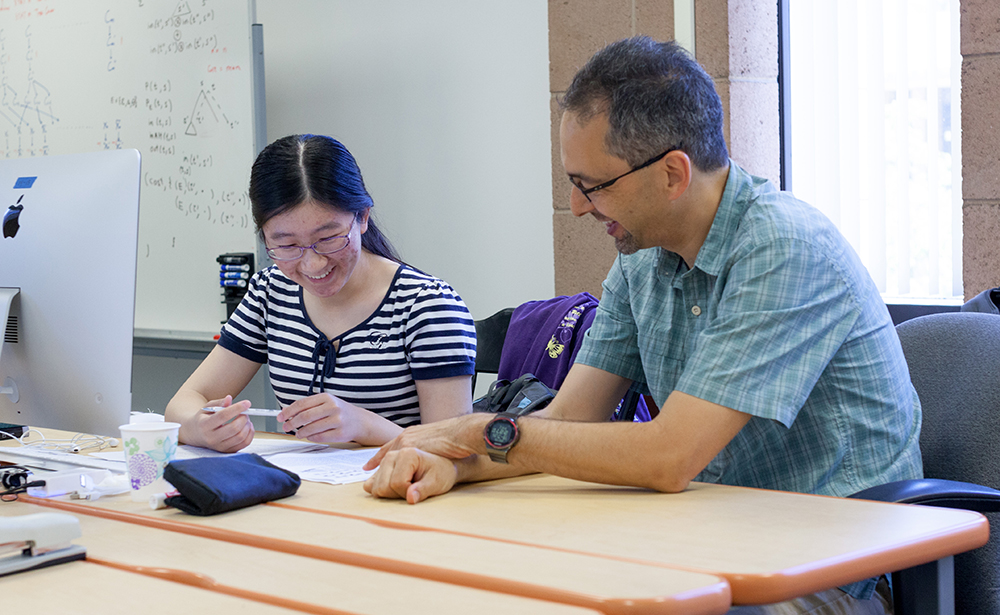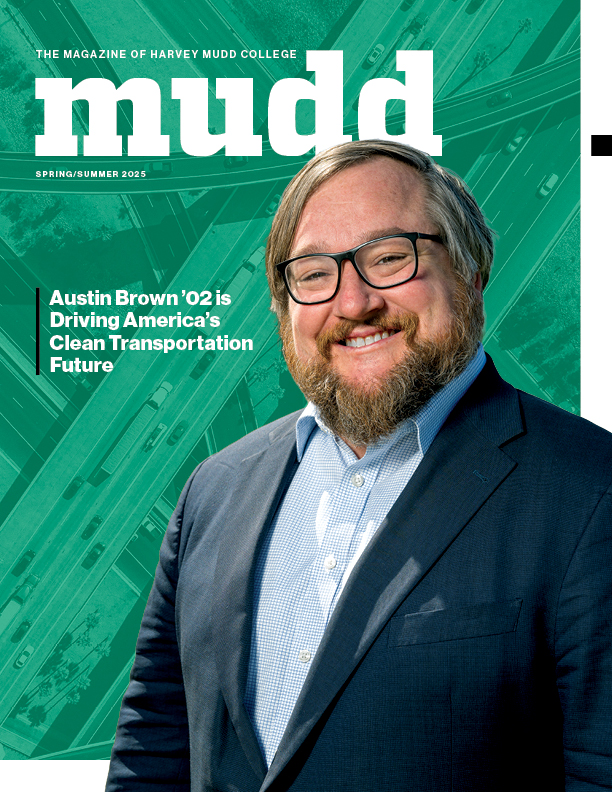Algorithms and Avocados
December 2, 2016
The connection between fighting a threat to one of California’s favorite fruits and recently published research by a Harvey Mudd College computer science professor and his colleagues isn’t immediately evident. On the way to connect one dot with the other, there’s a story about the mutualistic pairing of a beetle and a fungus, extensive biological fieldwork and a nod to Darwin’s prescient writings on co-evolution. But, as two recently published papers demonstrate, the solution to an increasingly serious problem and others like it may depend on the ability and speed of a computer program.
Ran Libeskind-Hadas, R. Michael Shanahan Professor of Computer Science and an expert who studies algorithmic issues in computational biology—in particular, the problem of reconciling pairs of evolutionary trees—co-authored “Invasive Asian Fusarium–Euwallacea ambrosia beetle mutualists pose a serious threat to forests, urban landscapes and the avocado industry,” which was accepted to the journal Phytoparacitica. A second paper, “DTL Reconciliation Repair,” co-authored by Libeskind-Hadas, Harvey Mudd student Anna Ma ’17 and Pomona College student Dima Smirnov ’17, has been accepted to the 2017 Asia Pacific Bioinformatics Conference (APBC) and will be published in BMC Systems Biology.
The first paper deals with testing the hypothesis of co-evolution between pairs of species, in this case the Euwallacea ambrosia beetle and the fungus Fusarium. The researchers used a Harvey Mudd-developed software package called Jane to compare evolutionary trees of the two systems. The algorithm posits the most likely scenario by which the beetle and her best pal fungus developed their 21-million-year-old mutualistic relationship, which helps researchers to better understand the pair’s co-evolutionary histories.
While Libeskind-Hadas’s interest and involvement in this research is focused on the computational step of the process, the self-proclaimed “avocado guy,” acknowledges that the research may be used in the future to solve serious problems created by these notorious BFFs, namely the mass destruction of several species of tree in California, including the avocado. “Ultimately, that’s what’s driving this,” he says. “I love seeing this work being used in practice, but fundamentally, the problems I’m working on have nothing to do with beetles. At the moment, I would say this is still in the realm of pure science.”
Guacamole lovers eager for a quick solution to the beetle-fungus problem are probably out of luck, but the second paper, “DTL Reconciliation Repair,” may provide some hope. In their current research, the team looked at ways of improving Jane to perform phylogenetic tree alignment more quickly. “As the data sets get larger, it takes more time to get results,” says Libeskind-Hadas. “We found that in about 15 percent of the data we tried, we were able to slightly outperform the best algorithm we have. If you’re going to spend years doing fieldwork, even a small amount of extra accuracy in the computational step is meaningful.” Ma will present the paper at APBC in Shenzhen, China, in January.
